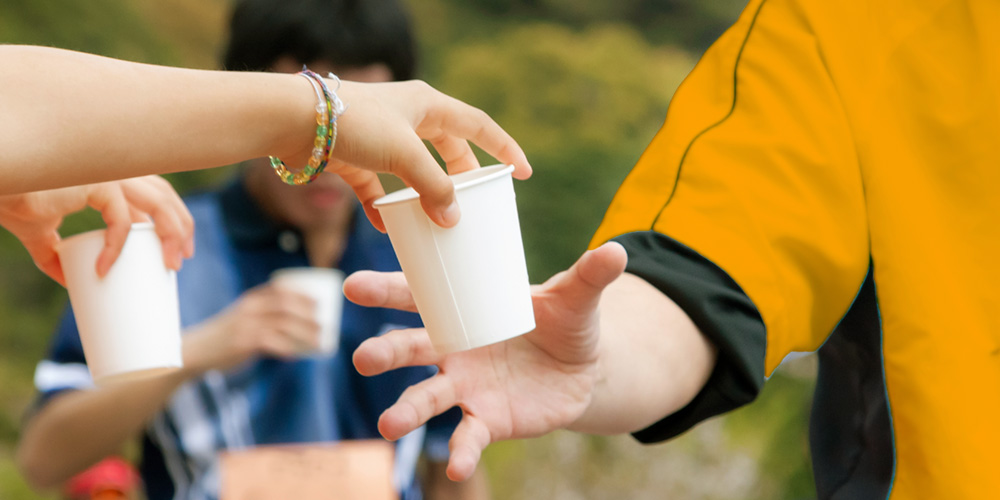Drinking is extremely important, and the longer the distance of the race, the more crucial it becomes. It is well known that dehydration can be very dangerous. At the same time, a lack of fluids also leads to less efficient oxygen transport and thus reduced muscle performance, which results in shorter running tempos. If you add to this effect the need for carbohydrate intake, it is easy to see how critical hydration is in achieving your running goal (an hour or more of running).
In this article, we show how much and how often you should drink during a long running race.
How much to drink
The general rule is to drink around 2 litres of fluid per day. However, this value may vary depending on body weight. For each kilogram, we assume a basic need of around 30-40 ml of fluid per day. A person weighing 60 kg needs 1.8-2.4 litres of fluid per day. This does not necessarily have to be consumed in the form of water, since food also contains liquids.
What is interesting is the additional requirement resulting from physical activity. A simple rule applies: for every kilocalorie consumed and kilometre added, one millilitre of fluid must be added.
Since consumption during running is about one kilocalorie per kilogram and kilometre, a 60-kg person would have to cope with 600 millilitres of extra fluid during a 10-km run.
When to drink
Before the race:
It is important to start the race with a full tank, but without overdoing it. This is because on the one hand everything that is drunk in excess has to be transported and on the other hand expelled through urine. We recommend drinking 500 ml of sports drink (6-8% carbohydrate) 1-2 hours before the start, preferably in portions.
Between 30 and 15 minutes before the start of the race, a further 3 dl can be drunk. It is preferable to be slightly warmed up, so that the liquid does not immediately enter the bladder.
During the race:
As described above, the following applies:
KG body weight x KM distance = ML of fluid
Remember that the body can take in a maximum of 2 dl of fluid every 15 minutes. Anything that is drunk in excess is carried along ‘uselessly’. It is therefore pointless to drink the entire dose at once. Instead, you should drink at 20-minute intervals and in small quantities.
Drinks containing electrolytes and carbohydrates should be consumed. In the case of high effort, 60 g of carbohydrates per hour can be expected.
Tip: crush the paper cup so that a small slit is formed. This prevents the drink from spilling over the edge of the cup during the run.
Useful tips:
- The colour of urine is a good indicator of hydration. The darker it is, the more you should drink.
- Before the run, the reservoir should not be more than full. Too much fluid increases the risk of toilet breaks.
- Room-temperature drinks are better tolerated.
- Beverages containing caffeine may help to maintain high concentration towards the end of the race. Energy drinks should be avoided due to their high sugar content.
- In intense heat, fluid loss can be slowed down by regularly pouring water over your head. This makes the water cool the body directly and indirectly (evaporation), thus reducing the amount of sweat.
- Test everything in training before using it in competition.
Other interesting articles on the subject:

